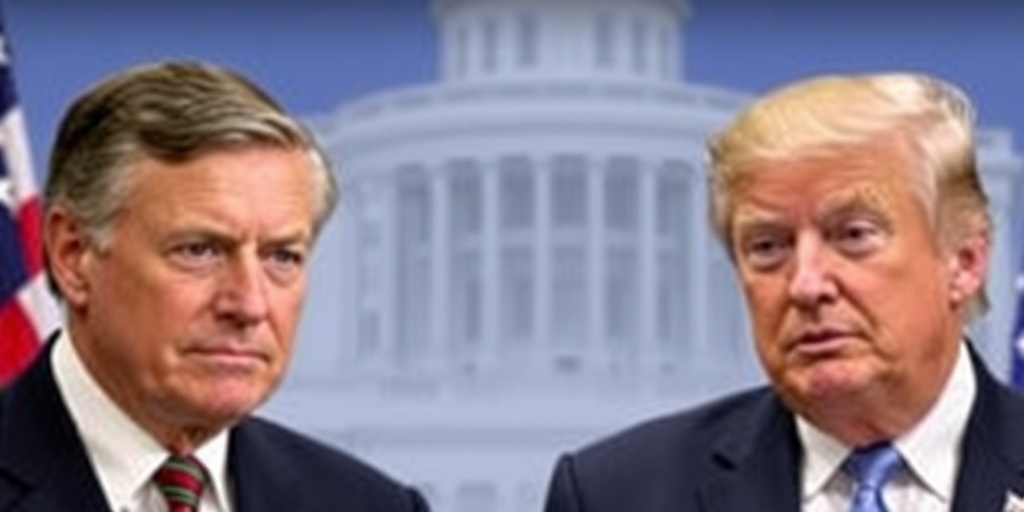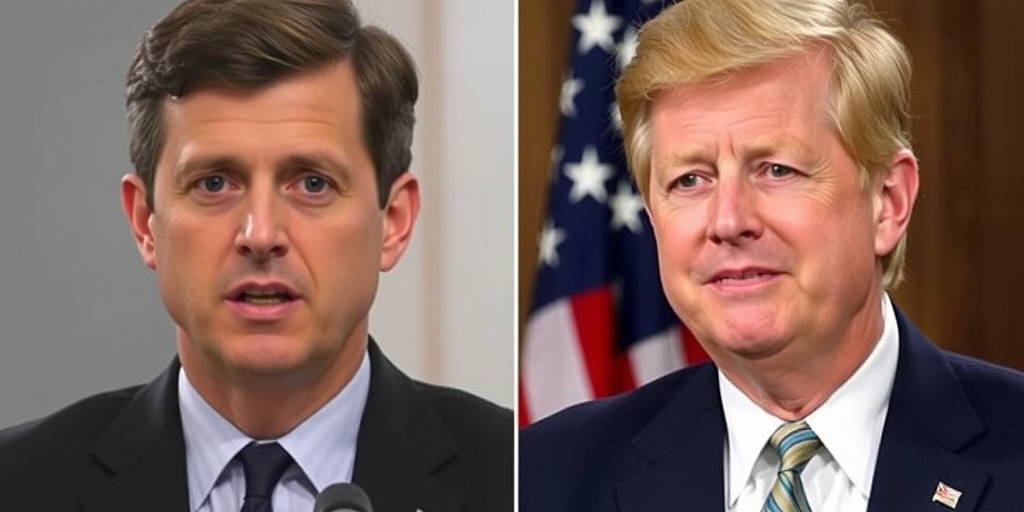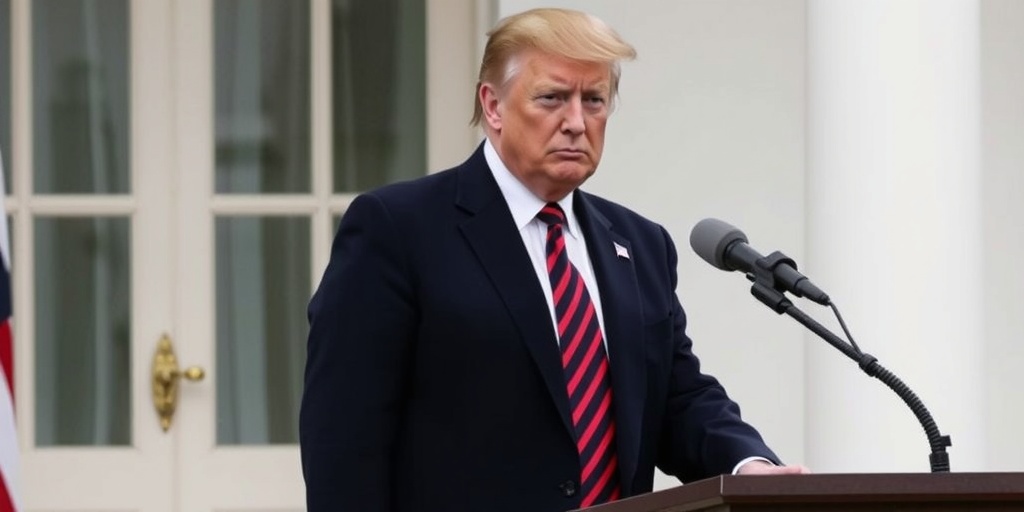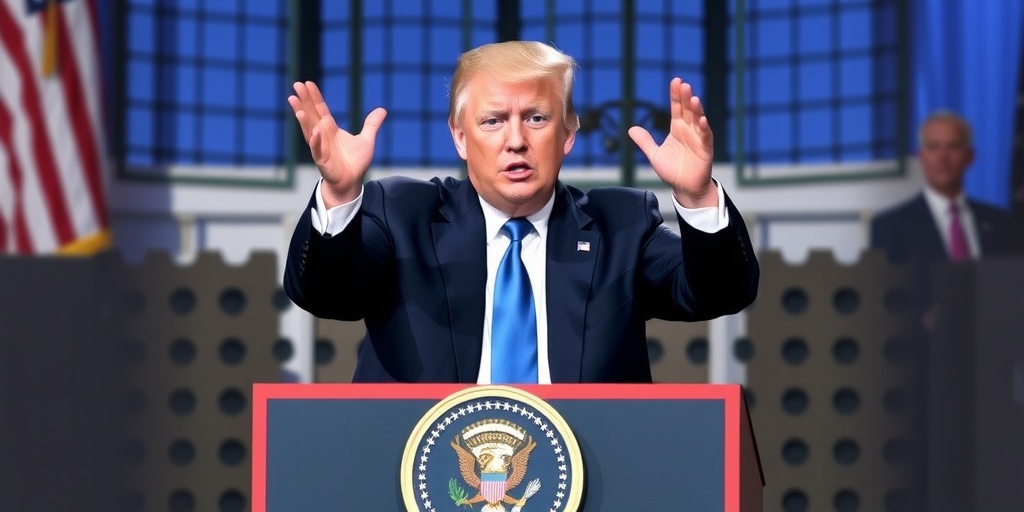Now Reading: Republicans Relinquish Power to Revoke Trump’s Tariffs, Sidestepping Difficult Vote
-
01
Republicans Relinquish Power to Revoke Trump’s Tariffs, Sidestepping Difficult Vote
Republicans Relinquish Power to Revoke Trump’s Tariffs, Sidestepping Difficult Vote

House Republicans Move to Avoid Vote on Tariffs Amid Political Pressure
In a strategic maneuver on Tuesday, House Republican leaders took decisive steps to shield their members from a potentially divisive vote concerning the termination of President Trump’s tariffs on Mexico, Canada, and China. This move involved embedding language into a procedural measure that effectively stripped the House of its ability to vote on rescinding these tariffs, a tactic that underscores the growing political sensitivity surrounding the issue.
The decision by Republican leadership appears to be a reluctant acknowledgment of the political ramifications associated with tariffs, particularly as the all-Republican Congress cedes more power to the executive branch. This tactical retreat reflects their desire to avoid prolonged debates that could put their members’ political futures at risk, especially as they grapple with the economic implications of the tariffs.
The procedural contortion employed by Republican leaders was notably unconventional. They declared that the remainder of the year would count as a single, continuous day for legislative purposes, thereby nullifying a provision in the National Emergencies Act that allows Congress to jointly terminate a presidentially declared emergency. This law, which is designed to let Congress nullify emergencies, was pivotal in addressing the tariffs—initially imposed by President Trump on February 1 and viewed by many as detrimental to both domestic and international relations.
Democrats had previously prepared to challenge the tariffs through a series of resolutions that invoked the National Emergencies Act, which would have required Congress to act within a specific timeframe. The urgency of these resolutions aimed to force Republicans into public votes on tariffs—an issue they may have preferred to avoid, particularly in light of President Trump’s controversial stance on tariffs which has raised alarms over potential inflation and market instability.
The Republican leadership’s calculated move reflects their awareness of the precarious political landscape. Many GOP members, despite their allegiance to the party, oppose tariffs on principle. However, they now find themselves in a dilemma: supporting a popular presidential policy that could alienate key constituents and negatively affect the economy, or siding with their party leadership in a decision aimed at protecting their political capital.
The language embedded in the procedural measure passed along strict party lines, as it formed part of a resolution necessary to facilitate a vote on a government spending bill designed to avert a shutdown. Democrats reacted strongly against the maneuver, framing it as a cowardly approach to discuss tariffs that ultimately affect American families and businesses. Representative Greg Meeks, a Democrat from New York who introduced the privileged resolution, criticized the Republican leadership, suggesting that they were excessively fearful of potentially embarrassing votes that might lead to lowering costs for the American public.
"The speaker is petrified that members of this House will actually have to take a vote on lowering costs on the American people," Meeks remarked. He challenged the integrity of Congress, questioning the purpose of their legislative body if it cannot take decisive action to alleviate economic pressures on citizens.
Although the House Republicans have sought to sidestep immediate pressure, the issue may not rest there. The Senate Democrats still have the potential to introduce a resolution aimed at ending these tariffs, which would put Republican senators in a difficult position—especially since any measure would require concurrent approval from both chambers and subsequently the president’s signature to become law.
This latest conflict illustrates the deeper ideological divides within Congress regarding trade policy and economic management. With key elections on the horizon, both parties are keenly aware that the tariffs and their effects will resonate with the voters. The outcome of this legislative maneuvering may very well shape political fortunes moving forward, as Republican leaders grapple with the complexities of executive power versus legislative accountability.
As Congress marches forward into a pivotal election year, the impact of tariffs remains a delicate and potentially explosive issue. The ability of Democrats to challenge them could force Republicans to publicly align with or against the tariffs, ultimately bringing the contentious economic debate into the spotlight, where voters have a front-row seat to the political dynamics at play.
In conclusion, as the situation develops, Republicans might find themselves at a crossroad wherein their actions—or lack thereof—regarding tariffs can significantly influence their political viability within an increasingly skeptical electorate. As the fall session progresses, it remains critical for both parties to navigate the treacherous waters of trade policy, public sentiment, and legislative power.
Stay Informed With the Latest & Most Important News
Previous Post
Next Post
-
 01New technology breakthrough has everyone talking right now
01New technology breakthrough has everyone talking right now -
 02Unbelievable life hack everyone needs to try today
02Unbelievable life hack everyone needs to try today -
 03Fascinating discovery found buried deep beneath the ocean
03Fascinating discovery found buried deep beneath the ocean -
 04Man invents genius device that solves everyday problems
04Man invents genius device that solves everyday problems -
 05Shocking discovery that changes what we know forever
05Shocking discovery that changes what we know forever -
 06Internet goes wild over celebrity’s unexpected fashion choice
06Internet goes wild over celebrity’s unexpected fashion choice -
 07Rare animal sighting stuns scientists and wildlife lovers
07Rare animal sighting stuns scientists and wildlife lovers





















